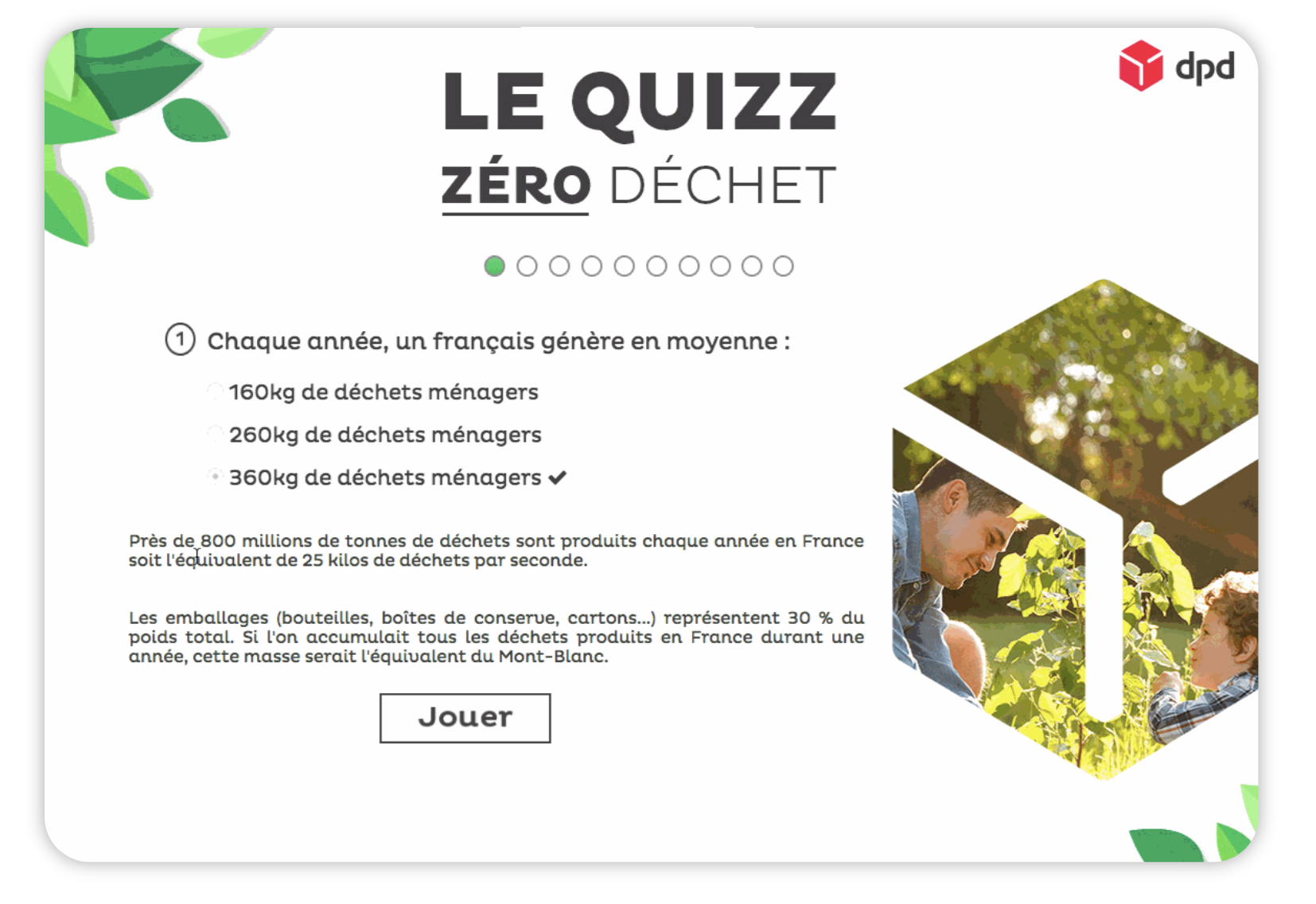Today’s consumers are attentive to the values upheld by companies. They ask where the products they buy come from, how they are made and how employees are treated. Anxious not to fall into the trap of greenwashing, buyers expect action rather than words.
It is in this context that CSR marketing represents an opportunity for brands. Corporate Social Responsibility commits companies to take action to protect the environment and promote social justice. By communicating these actions, companies can raise their profile, build a community and stand out from competitors.
In this article, we look at the interaction between marketing and CSR and how to boost your strategy by using fun ways of raising awareness.
What is CSR?
Created by environmental and humanitarian organisations, CSR (or Corporate Social Responsibility) aims to encourage companies to make a commitment to sustainable development. Since 2010 (with the ISO 26000 standard), this concept has been governed by an international standard under which the policy pursued by companies must address a number of key issues :
- Local development.
- Defending human rights.
- Decent working conditions.
- Actively protecting the environment (by reducing its carbon footprint).
Both environmental and ethical, CSR is not just a declaration of intent. It must be translated into action, throughout the company’s value creation chain. It is a global strategy, encompassing the use of environmentally-friendly raw materials. But also the establishment of relations with all its stakeholders, the recycling of its waste and respect for more horizontal governance.
CSR is a commitment to structural change, it is also a growth factor for companies. Indeed, it is proving to be a marketing asset for brands wishing to focus their communication on strong values.
Why integrate CSR into your marketing strategy?
While it is tricky to combine commitment and marketing, the two are not contradictory. In fact, CSR can be integrated into a company’s marketing strategy. Today, brands are not just economic players, but social players. This implies moral and ethical obligations to make better products. This positioning can be used to stand out in the marketplace and reach out to committed consumers.
CSR marketing can encompass several elements:
Storytelling and corporate branding
By integrating its CSR initiatives into its brand territory, the organisation will create a strong narrative. The brand will therefore be likely to generate emotions in consumers. This is the case with committed brands such as Asphalte or Respire, which strengthen the connection with their customers by highlighting their authenticity and transparency.
Responding to consumer expectations
Companies must adapt to the needs and aspirations of their audience. Consumers are now aware of the ecological and social issues behind their purchasing decisions. CSR marketing enables companies to position themselves as committed brands that meet the new consumer-actors’ demands.
Brand differentiation
In a saturated market, CSR marketing enables to make a difference on more than the price or quality of products/services. Using recyclable materials, manufacturing in France or sharing revenues with employees are ways of creating a brand identity.
Engagement on social networks
Communicating on your CSR policy can be a way of creating authentic content. Companies can share their employees’ initiatives and go behind the scenes to engage their audience.
Buyer conversion and loyalty
CSR strategy can directly influence consumers’ purchasing decisions. Indeed, numerous studies show that buyers are prepared to pay more for products or services marketed by responsible companies. It is a channel for building loyalty, as customers are loyal to companies whose values they share.
Gamification to boost CSR marketing
To convey their values in favour of the environment and social justice effectively, companies can use engaging marketing levers.
Gamification, i.e. incorporating playful elements into campaigns, is well-suited to CSR marketing. This format enables audiences to be better engaged by encouraging interaction.
Quiz to raise awareness of CSR issues
It is also a well known method in education (known as edutainment) for encouraging the discovery and memorisation of information. As part of a company’s CSR policy, formats such as the Quiz or Memory can be used to raise awareness among employees and customers about issues such as respect for the environment.
This is the route taken by the DPD transport company to raise employee awareness of the waste reduction issue. The company is using this mechanism to involve its teams in CSR issues, but also to promote commitments, particularly its tennis sponsorship.
As well as the format itself, which tests knowledge and retention of new information shared in the quiz, the company banked on attractive prizes. As a result, employees were motivated to take part in this CSR game to win electric bikes and connected caps.

Competitions to engage your community
Competitions are another way of communicating effectively about a CSR strategy and inviting a community (both internal and external) to be involved with your company. Adictiz imagined a CSR game in which employees were invited to create a reusable cup (using a Customizer) to help reduce plastic waste.

In the same way, brands can organise competitions on social networks. Content creator Lena Situations challenged her community to find eco-friendly ways of recycling unsold items form her clothing collection.
Conclusion
CSR marketing is an excellent way for your brand to create a stronger connection with its prospects, customers and employees. With Adictiz, you can organise interactive games around your company’s Corporate Social Responsibility. You can also communicate your values and commitments in a more authentic and fun way!









